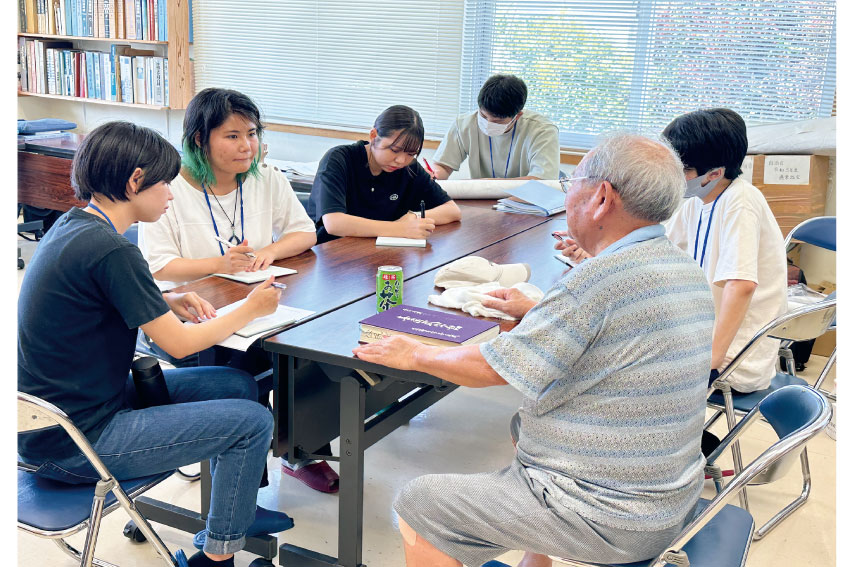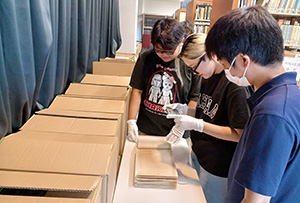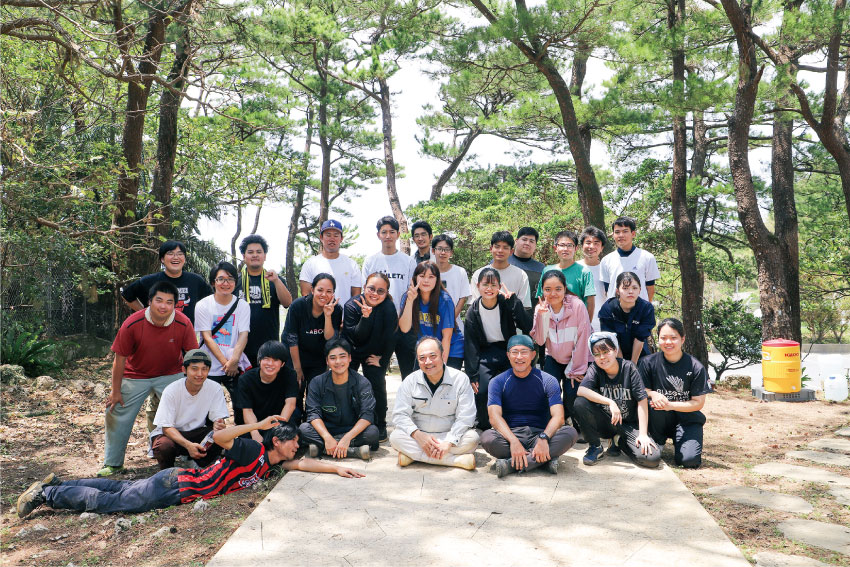Department of Society and Regional Culture
画像ギャラリー
Learn about Okinawa and the human condition so you can lead Okinawa and Japan into Asia’s global future!
In the Department of Society and Regional Culture, students study the history and current situation of the Ryukyu Islands while paying attention to connections to the surrounding world, especially East Asia. The department trains professionals who will lead Okinawa in its dealings with Japan, Asia, and the world, while being sensitive to the needs of Okinawa and human beings.
Department Characteristics
The department trains professionals who will use their global perspectives and knowledge of Okinawa’s history, culture, and thorough society to discover new possibilities for the future.
In the Department of Society and Regional Culture, students study the history and current situation of the Ryukyu Islands while paying attention to connections to the surrounding world, especially East Asia. The department trains professionals who will lead Okinawa in its dealings with Japan, Asia, and the world, while being sensitive to the needs of Okinawa and human beings.
Department Characteristics
The department trains professionals who will use their global perspectives and knowledge of Okinawa’s history, culture, and thorough society to discover new possibilities for the future.
- Training to a become a specialist in Okinawa history, culture, and society.
- Fieldwork is emphasized.
- Acquire a wide range of knowledge concerning the structure of human society and civilization.
- Develop an international outlook from Okinawa to Asia and the world.
- Acquire practical English skills
- Small-group seminars for all four years of study.
- Training to become a professional who can discover and solve problems.
Admission Policy(Acceptance of New Students)
The Department of Society and Regional Culture, in accord with the university’s admission policy, seeks applicants who are interested in learning about human beings and Okinawa, who strive to improve as individuals and human beings, and who possess the following qualities:
- The intellectual curiosity and sense of adventure needed to understand Okinawa.
- A deep interest in the workings of global societies and cultures that concern Okinawa.
- The basic academic abilities needed to face Okinawa’s global problems.
- An ability to act independently in discovering problems, to go out into the field, and to gather and interpret information.
- The independence and cooperative spirit needed to engage in activities related to the local community, international exchange, volunteering, culture, and sports, both inside and outside of school.
Curriculum Summary
The most important aspect of the curriculum is its holistic approach to teaching about the Ryukyu Islands (Amami, Okinawa, Miyako, and Yaeyama). This includes a comprehensive study of how people here have lived through history, what kind of society and culture they’ve formed, and the current social realities of living on the islands today. To this end, the department has established four divisions: archeology and prehistory, history, folk culture and anthropology, and sociology and peace studies. A second important characteristic of the curriculum is the emphasis on education through specialized seminars, which students take for their four years at university. In their freshman year, students learn the basics of university study and research to prepare themselves for specialized education. Students progressively deepen their understanding of their specialized fields from their sophomore year by taking seminar classes in their division. Especially during their junior seminars, students carry out fieldwork to acquire an understanding of Okinawa based on actual experience, so they can become leaders of an Okinawa and Japan rooted in Asia and the world.
| Teacher | National Government | Local Government | Museum Curator |
| International Organizations | Tourism | Mass Communication | Printing and Publishing |
| NPOs and NGOs |



